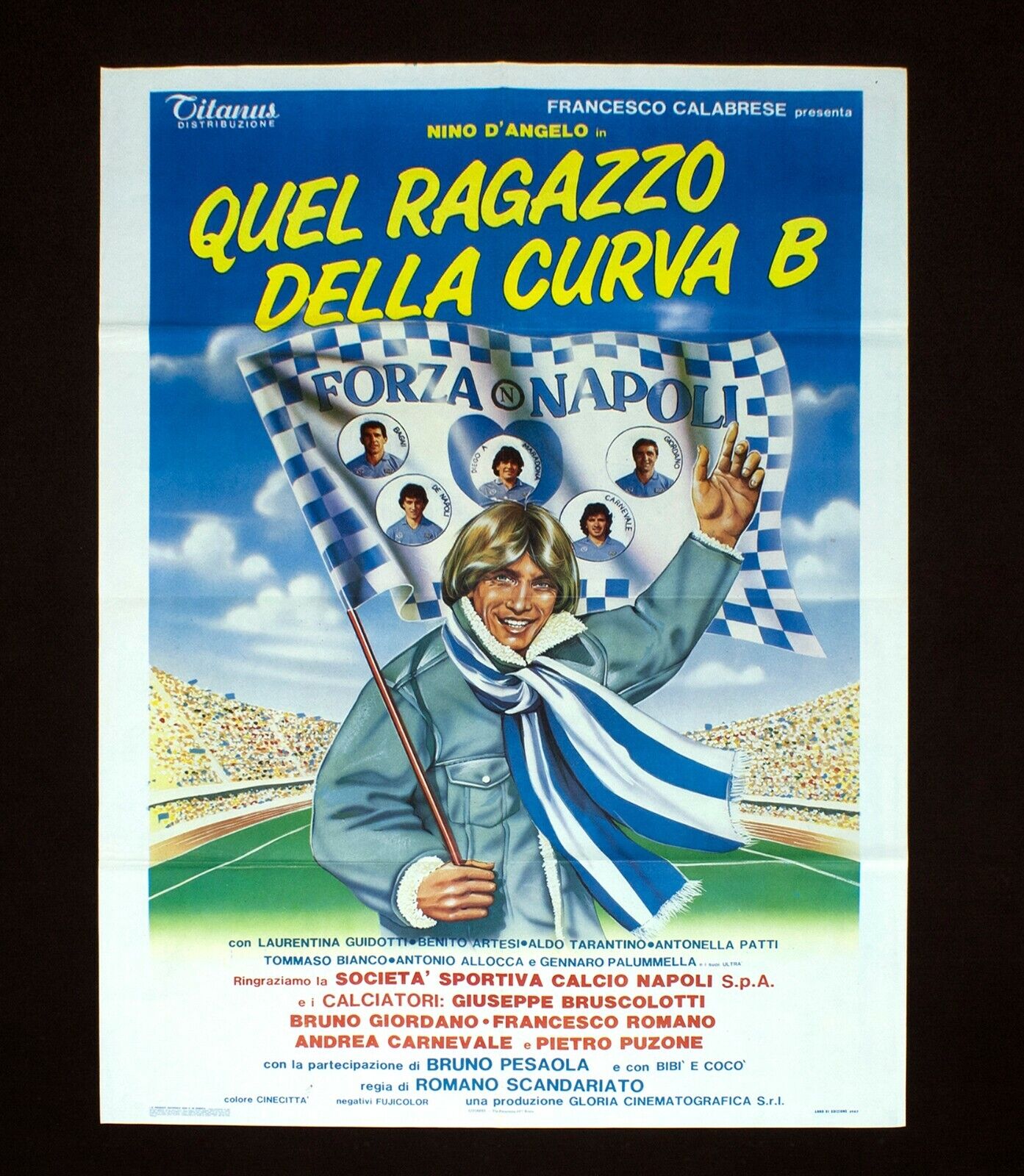Not just a film: an ode to belonging, a cry of fate
Nino D’Angelo conquers San Paolo Stadium and the heart of an entire city, the year Maradona won Napoli Football Club its first ever league championship
In a concert held at the San Paolo Stadium (the home of Napoli Football Club) to celebrate Nino D’Angelo’s 60th birthday, all 15,000 people present loudly sang Forza Napoli, the song by the star of Neapolitan music that best sums up what this film is all about. More than a simple song, it’s an anthem that can still be heard ringing around the stadium terraces when Napoli are on the pitch. Whether you like it or not, we need to surrender to the facts: Quel ragazzo della curva B steers clear of any possible attempts to classify it. It is a fascinating sociological phenomenon, an object of adoration, a totem to the sense of belonging. And lastly, if we really have to, it’s also a film. And one with an incredible power of prophecy: when released, Napoli Football Club had never won a league title and that year’s championship was still underway. But Nino challenged fate and won. It also boasts some distinctly different characteristics from the typical Nino-movie: of course there is a story of young love, but it is overshadowed by a passion for football. What’s more, the Camorra, the Neapolitan organised crime group, a subject until then avoided by Nino in his songs and films, also features in the plot. Footnote: Ottavio Bianchi, the manager of Napoli, and some of the players appear in the film. But not Maradona.
Nino is a mechanic and a big fan of Napoli Football Club. He sets up a club for non-violent fans and conquers the terraces. The Camorra fear that this may have negative consequences for its shady dealings. Nino gets stabbed, but that doesn’t prevent him from getting back into the stadium to see his beloved team win the league championship. Things will also end well between him and his girlfriend.
Not just a film: an ode to belonging, a cry of fate
Nino D’Angelo conquers San Paolo Stadium and the heart of an entire city, the year Maradona won Napoli Football Club its first ever league championship
In a concert held at the San Paolo Stadium (the home of Napoli Football Club) to celebrate Nino D’Angelo’s 60th birthday, all 15,000 people present loudly sang Forza Napoli, the song by the star of Neapolitan music that best sums up what this film is all about. More than a simple song, it’s an anthem that can still be heard ringing around the stadium terraces when Napoli are on the pitch. Whether you like it or not, we need to surrender to the facts: Quel ragazzo della curva B steers clear of any possible attempts to classify it. It is a fascinating sociological phenomenon, an object of adoration, a totem to the sense of belonging. And lastly, if we really have to, it’s also a film. And one with an incredible power of prophecy: when released, Napoli Football Club had never won a league title and that year’s championship was still underway. But Nino challenged fate and won. It also boasts some distinctly different characteristics from the typical Nino-movie: of course there is a story of young love, but it is overshadowed by a passion for football. What’s more, the Camorra, the Neapolitan organised crime group, a subject until then avoided by Nino in his songs and films, also features in the plot. Footnote: Ottavio Bianchi, the manager of Napoli, and some of the players appear in the film. But not Maradona.
Nino is a mechanic and a big fan of Napoli Football Club. He sets up a club for non-violent fans and conquers the terraces. The Camorra fear that this may have negative consequences for its shady dealings. Nino gets stabbed, but that doesn’t prevent him from getting back into the stadium to see his beloved team win the league championship. Things will also end well between him and his girlfriend.

